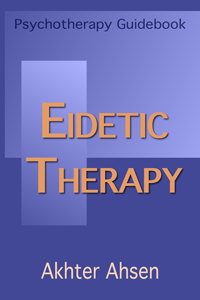

Here, we utilized both subjective and objective measures of visual imagery ability and show that, within the same individual, greater pupillary light responses during imagery are associated with reports of stronger and more vivid imagery. The researchers also found that the pupil response didn’t happen in people with aphantasia. Researchers found that the amount of dilation and constriction depended on the vividness of a person’s mental images. This effect also happens to most people when they just imagine light and darkness. Pupils of the eye contract in bright light and expand in darkness. It appeared to confirm the existence of the condition. There was an interesting experiment done in 2022 to test pupil responses in people with aphantasia. You can read the study here: A cognitive profile of multi-sensory imagery, memory and dreaming in aphantasia. Spatial imagery – the ability to imagine distance or locational relationship between things – was the only form of sensory imagery that had no significant changes across aphantasics and people who could visualise. “We’re only just starting to learn how radically different the internal worlds of those without imagery are.”Ģ6 per cent of aphantasic study participants reported a broader lack of multi-sensory imagery – including imagining sound, touch, motion, taste, smell and emotion “Our data revealed an extended cognitive ‘fingerprint’ of aphantasia characterised by changes to imagery, memory, and dreaming,” says Mr Dawes.

The results were compared with responses from 400 people spread across two independent control groups.įor example, participants were asked to remember a scene from their life and rate the vividness using a five-point scale, with one indicating “No image at all, I only ‘know’ that I am recalling the memory”, and five indicating “Perfectly clear and as vivid as normal vision”.
APHANTASIA EIDETIC IMAGERY SERIES
Study participants completed a series of questionnaires on topics like imagery strength and memory. “People with aphantasia reported a reduced ability to remember the past, imagine the future, and even dream.” “We found that aphantasia isn’t just associated with absent visual imagery, but also with a widespread pattern of changes to other important cognitive processes,” he says. There was an interesting study from 2020 that found some interesting information about aphantasia. If you have aphantasia, you might was to also read the virtual memory palaces article. Tip: you can test your memorization abilities with the Memory League web app. Here is one community member with aphantasia who can perform feats like memorizing 30 random digits in 4 seconds using memory techniques.
APHANTASIA EIDETIC IMAGERY HOW TO
If you can remember how to walk from one point to another and remember things that happened along the way, you can use the memory palace technique. The short answer is that aphantasia doesn’t prevent people from using memory techniques at an advanced level. Many people in the forum wonder whether aphantasia affects memory or interferes with the ability to practice memory techniques. Aphantasia refers to an inability to mentally pictures visual images.


 0 kommentar(er)
0 kommentar(er)
